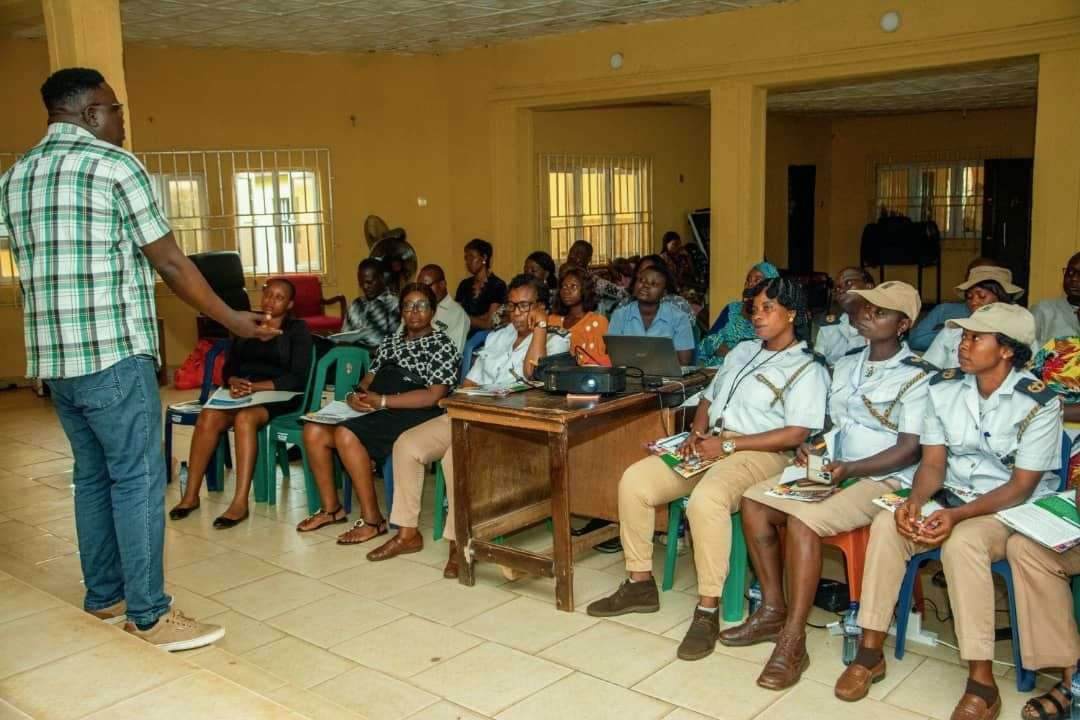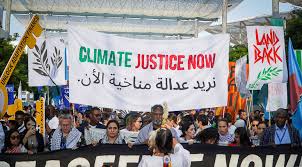Connected Advocacy for Empowerment and Youth Development Initiative has held a one -day Capacity Building workshop for Egor Local Government Council Staffs on developing Net Zero Action Plans.
The Executive Director, Connected Advocacy, Prince Israel Orekha told newsmen on Friday that the workshop is aimed at supporting, the acceleration, implementation and the achievement of Nigeria’s net zero Commitment target to tackle climate change.
Orekha said that in achieving net zero emission in record time, eit was important to build the capacity of people at the grassroots on Emission Reduction Strategies, Assessment of Local Emission Sources
According to him, stakeholder engagement and collaboration are critical in achieving the required campaign on net zero reduction.
He said that the event emphasized the nature of climate change, its social, economic, and public health impacts, and highlighted the background causes and risks posed by the phenomenon.
The executive director explained that the workshop also addressed the pressing questions of how to localize the achievement of carbon neutrality, the effects of emissions on communities, and strategies for local government offices to scale up their actions.
He said that the training began with an assessment of the background knowledge of Egor local government officers present, yielding positive results.
“This favorable outcome shaped the course of the training, allowing for a more in-depth and interactive session.
“The speakers underscored the real-life consequences of unabated emissions, noting their detrimental effects on air quality, and the pollution of ground and surface water, which pose significant health risks to already marginalized community members.
“Particular emphasis was placed on gas flaring in regions such as Edo, Delta, Bayelsa and Rivers, which exacerbates heat waves and contributes to global warming.
“The speakers painted a vivid picture of the environmental and health crises resulting from such practices, highlighting the urgent need for concerted local action.
Strategies for Local Government Action
The training outlined comprehensive strategies for local government action to combat climate change:
1. Identify Key Emission Points: Through rigorous research, investigation, data analysis, and mapping, local governments can pinpoint major sources of emissions.
2. Minimize Emissions Across Sectors: Strategies were discussed to reduce emissions in various sectors, including transportation, industry, and domestic cooking.
3. Collaborate with Key Stakeholders: Building strong partnerships with relevant stakeholders was identified as crucial for amplifying the impact of local climate actions.
4. Implement Jointly Agreed Strategies: Emphasis was placed on the importance of collaborative implementation of strategies tailored to local contexts.
5. Evaluate Progress: Continuous evaluation of outcomes to track progress and identify potential setbacks was highlighted as essential for sustained success.
Community Engagement and Development
The workshop did not shy away from the broader context of developmental challenges. Connected Advocacy stressed the importance of community and development assessments at the local government level.
Identifying the specific developmental challenges faced by local communities is critical for channeling resources, funds, and support effectively.
By addressing these challenges, local governments can create an enabling environment for sustainable development and climate resilience.
Voices of Appreciation and Calls to Action.
The training concluded on an optimistic note, with council members expressing their appreciation for Connected Advocacy’s efforts.
Ms. Idemudia, affectionately known as “Madam Project,” applauded the organization for bringing essential climate education to local government officials.
Hon. Martins also commended Connected Advocacy’s commitment to achieving net zero in the country. He, however, urged the government to increase its efforts, acknowledging that much more can be done.
A Collective Call to Action
In a resounding call to action, Connected Advocacy urged all officials present to act decisively.
The organization emphasized the importance of developing robust policies, fostering collaborations, and taking concrete actions because, as they reiterated, climate change is real and its impacts are already being felt.
The message was clear: there is no time to waste in the fight against climate change, and local governments have a pivotal role to play.
The event marked a significant step forward in empowering local government officials with the knowledge and tools needed to drive climate action at the grassroots level.
It showcased the potential for local governments to lead the advocacy towards a sustainable and resilient future for Nigeria.
As the seminar drew to a close, the sense of urgency and commitment among the attendees was palpable.
The knowledge gained and the strategies discussed provided a solid foundation for future actions aimed at mitigating the impacts of climate change and achieving net zero emissions.
Prince Orekha added that the training was part of the Raising Awareness About Netzero in Nigeria Project implemented in Nigeria by Connected Advocacy, International Climate Change Development Initiative, ICCDI and the Centre for 21st Century Issues.
Realnews reports that Connected Advocacy is a leading organization dedicated to driving climate action and sustainable development in Nigeria.
Through education, advocacy, and collaboration, the NGO empower communities and local governments to take proactive steps toward a sustainable future.








Great Minds Think Differently (Free Newsletter)
-> newsletter.scottdclary.com
Each week, Scott’s Newsletter breaks down the ideas, strategies, mental models and frameworks that separates the exceptional from the average.
Join 320,000+ entrepreneurs and innovators who use these insights to spot hidden opportunities and make smarter moves.
If you want to level up in your career. If you want to level up in your business. This is a free newsletter that will transform how you think, decide, and compete in today’s complex world.
Subscribe now.
Your future self will thank you.
-> newsletter.scottdclary.com